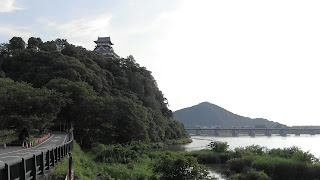COVID-19: Testing Japan’s economy for its breaking point
COVID-19 pushed down Japan’s industrial production in March
The Ministry of Economy, Trade and Industry announced on April 30 that the industrial production index for March was 95.8, down 3.7% from the previous month. It was the lowest level since January 2013. Corporate activities stagnated due to the spread of new coronavirus infections.The production for March was pushed down because some factories stopped operations to adjust production volume. Production fell in a wide range of industries including the automobile industry and chemical industry. Production index fell in 13 industries out of 15.
The shipment index fell 5.0% to 94.0, the first drop in four months. It is the lowest level since 2013, when comparable data is available. Shipments for export were influenced by the infections and declined in 14 industries such as the automobile industry and the manufacturing machinery industry including semiconductor manufacturing equipment.
The inventory index increased by 1.9% to 106.4, and the inventory ratio index increased by 8.5% to 122.1, both of which were the highest since 2013. The index for April will deteriorate further because the influence of the new coronavirus infection is getting severe.
New car sales drugged down by COVID-19
An automobile industry group announced that the number of domestic new vehicle sales in April was 270,393 units, a decrease of 28.6% from the same month of the previous year.Due to spread of the new coronavirus, the decrease was the biggest in nine years since the Great East Japan Earthquake. This is the seventh consecutive month of decline from the previous year. State of the emergency declared by the Japanese government in April made people refraining from going out and purchasing.
Automobile parts factories shut down in Japan and abroad also resulted in delays of delivery and supply disruptions. Up until now, the consumption tax hike has pushed down car sales, but the new coronavirus has been added as a certain negative factor.
By brand, Toyota decreased 20% year-on-year, Honda 19.5%, Nissan 39.2% and Mitsubishi 57.2% respectively, all far below the previous year. With state of the emergency extended to the end of May, it seems that few customers will visit dealers nationwide in May.
Temporary suspension of finished vehicle plants by auto manufacturers including Toyota is expected to continue. As for the sales volume in May, which will be announced about a month later, even more down ward pressure is inevitable.
Tourism industry hit hard without inbound demand
The new coronavirus pandemic has cast a dark shadow over domestic employment. In March, the ratio of job offers to applicants decreased for three consecutive months with unemployment rate worsened.Employment is getting worse especially in the tourism industry, which is affected by the infection first. It is concerned that Japan must face more severe situation to come. The ratio of job offers to applicants in March announced by the Ministry of Health, Labor and Welfare decreased by 0.06 points from the previous month to 1.39. It was the first time in three and a half years to fell below 1.4.
The situation will become even more gloomy in April because employment in the tourism industry which has created jobs and revenue for local economies so far will keep plummeting in April across the board.





Comments
Post a Comment